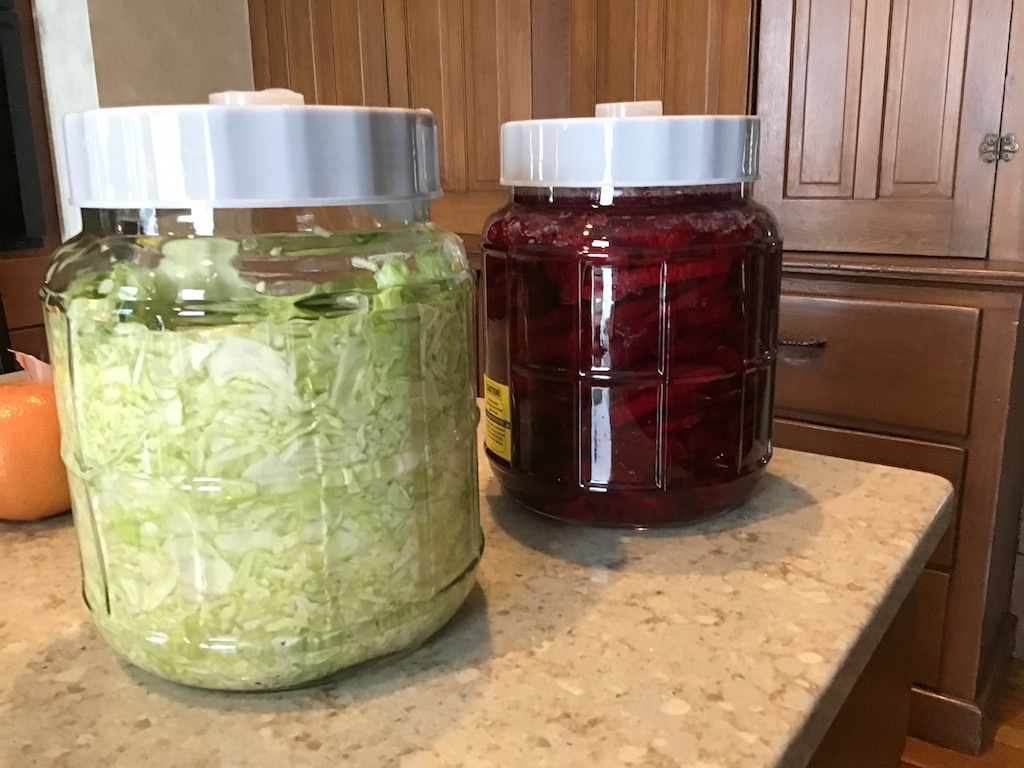I've tried to make Sauerkraut a dozen or so times in the past, and while I've generally made something edible - particularly if fried in bacon fat - it's never been all that good. If I recall, I've basically added non-iodized salt (I think 1.6% of the weight of the cabbage? I don't recall the ratio for sure), sometimes a couple other spices, maybe mashed it up a bit, pressed it into a jar, and added just enough water to submerge it.
Recently, I started making kimchi according to this recipe. I have added a bit more radish than suggested and used Korean chili paste in place of the chili powder (adding all the other ingredients to the paste per the recipe), and it's been really good.
In this recipe, you massage the salt into the chopped cabbage dry, then add water and brine it for 1-2 hours. Then you pour off the water, rinse the cabbage, and squeeze out most of the excess water before adding your kimchi spice paste and fermenting. Does this method (sans the spice paste, and with a different kind of cabbage and cut, of course) sound like it would make a good Kraut?
Also, any thoughts on how to hand cut the cabbage for optimal texture? My attempts at kraut so far have always been too wide and contained a lot of the thick rib material from the cabbage leaves. I don't have a mandolin slicer so I've always cut it by hand, and it's just not the same as the thin slivers I'm used to from both store-bought and handmade German restaurant Kraut. Would I maybe be better off using the coarse side of a cheese grater?
Recently, I started making kimchi according to this recipe. I have added a bit more radish than suggested and used Korean chili paste in place of the chili powder (adding all the other ingredients to the paste per the recipe), and it's been really good.
In this recipe, you massage the salt into the chopped cabbage dry, then add water and brine it for 1-2 hours. Then you pour off the water, rinse the cabbage, and squeeze out most of the excess water before adding your kimchi spice paste and fermenting. Does this method (sans the spice paste, and with a different kind of cabbage and cut, of course) sound like it would make a good Kraut?
Also, any thoughts on how to hand cut the cabbage for optimal texture? My attempts at kraut so far have always been too wide and contained a lot of the thick rib material from the cabbage leaves. I don't have a mandolin slicer so I've always cut it by hand, and it's just not the same as the thin slivers I'm used to from both store-bought and handmade German restaurant Kraut. Would I maybe be better off using the coarse side of a cheese grater?








![Craft A Brew - Safale S-04 Dry Yeast - Fermentis - English Ale Dry Yeast - For English and American Ales and Hard Apple Ciders - Ingredients for Home Brewing - Beer Making Supplies - [1 Pack]](https://m.media-amazon.com/images/I/41fVGNh6JfL._SL500_.jpg)

















































